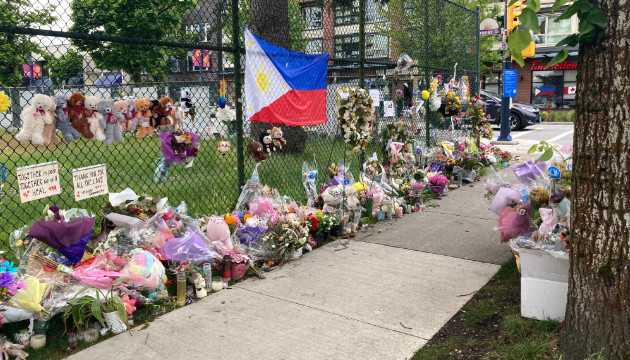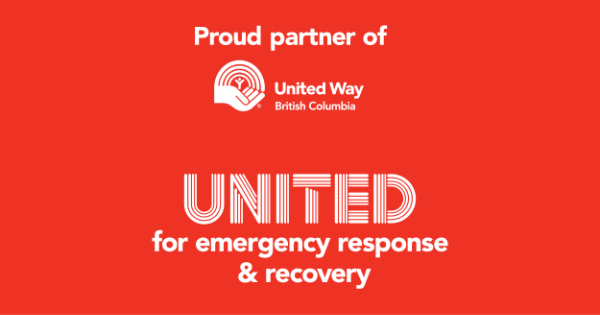October 1, 2025 – Bayanihan (collective or community care and support) is a valued tradition among Filipinos. In Philippine villages, its spirit draws farmers to join hands and help each other plow the fields, plant and harvest rice, maintain irrigation canals, or move a house. It inspires urban dwellers to get together and volunteer to patrol the neighborhood to keep peace and order or fight fires.
Interestingly, when Filipinos immigrate to Canada, the bayanihan spirit continues to permeate their community life through the formation of Filipino associations. As they blend into mainstream Canadian society, Filipinos maintain active links with their kababayan (compatriots) through spontaneous or organized activities. They see each other in Catholic churches every Sunday. They buy Philippine groceries in Philippine sari sari stores or eat in familiar Filipino restaurants. When they send money to family back home or ship balikbayan boxes to relatives, they go to Filipino agencies for money remittances and cargo delivery.
 Lapulapu day Tragedy site on East 43 and Fraser Street. Photo by George Laquian.
Lapulapu day Tragedy site on East 43 and Fraser Street. Photo by George Laquian.
Filipinos in Canada are scattered in cities or towns wherever they may choose to reside. But they prefer to deal with their compatriots in social linkages as part of the Filipino cultural value rooted in a reciprocal kinship system of trust. They seek out fellow Filipinos when needing the services of a physician, lawyer, dentist, realtor, car dealer, mechanic, insurance agent, plumber or barber. This communal
nature of Filipinos as joiners– their strong need to be part of a group – has led to a proliferation of Filipino associations all over Canada.
Filipino associations in Canada are formed along provincial or regional origins, university affiliations or common interests. These associations, which mirror their rich culture and diversity, reflect Filipinos’ enthusiasm to do common good for the community and represent various causes in society.
The lists of Filipino associations maintained by the Philippine Embassy and Consulates show over 500 registered names and the list compiled by the 2025 Dahong Pilipino edition shows 161 associations in BC alone. An avid observer of how Filipinos behave in Canada once remarked that there were probably as many Filipino associations in Canada as there were islands in the Philippines.
Asked why there are so many Filipino associations in Canada, Greg V. Barcelon, a psychologist who immigrated to Canada in 1993 explained: “There are probably three factors that create this situation. First, Filipino behavior is colored by their cultural past – the communal nature of Filipinos strengthens the “us” against “them” attitude which explains their strong need to be part of a group. Second, our familiarity with inequality drives many of us to aspire for top positions so we can say ‘I’m somebody.’ Lastly, our short-term orientation, shaped in part by our lack of control over our personal and national destiny in the past, accounts for self interest rather than a commitment to the greater good.
“In a way, living in another country gives Filipinos a chance to be free from their social status back home and a shot at realizing their dreams (or fantasies) to be somebody important. With the availability of many aspiring leaders in the community, conflict among members becomes endemic, resulting in break up and splintering into subgroups.”
By 2025, Filipinos in Canada, most of them immigrating to Canada only in the last 50 years, have grown to a million strong across the country. Because of their various needs, jobs, and different places of origin in the Philippines and places of residence in Canada, they have organized themselves into various factions and organizations often competing against each other. Thus the Filipinos in Canada are often seen as fragmented and disunited, refusing to form an umbrella association such as a united council of all Filipino Associations in Canada, because everyone prefers to be leader rather than follower.
After Lapu lapu Day Tragedy
A fatal day in 2025 – April 26 – vanished all that disunity among Filipinos when tragedy ended a joyful celebration of Lapu lapu Day in Vancouver. A mentally unstable driver rammed his SUV through a crowd of merrymakers enjoying Filipino food from a row of food trucks, killing 11 and seriously injuring 30 among them. It was a traumatic blow to the Filipino community but the tragedy brought them oneness. Individually or as a group, they came together as one to grieve and support families impacted by the tragedy and comfort each other with hugs and shared prayers.
RJ Aquino of Filipino BC, the group organizing the annual Lapu Lapu Day street festival, was overwhelmed by the kindness and generosity of time and resources offered by the Filipino community along with the support of other Canadians who generously donated to help grieving families.
In the face of this tragic event, MBNS (Maple Bamboo Network Society) witnessed the emergence of a strong and united Filipino community in Canada. The 24 stories in this series will showcase the Filipino values of kapwa (shared identity) and bayanihan (collective care) as they live them in Canada. CanadianFilipino.Net, the digital biweekly published by MBNS will now focus its coverage on a strong and hopeful community. Proud of their Philippine heritage and happy to share it with other Canadians, Filipinos will now nurture their new role as a united community, helping each other and respecting each other’s differences, while they work side by side with other Canadians and evolve into their new identity of a “united Canadian Filipino community.”










